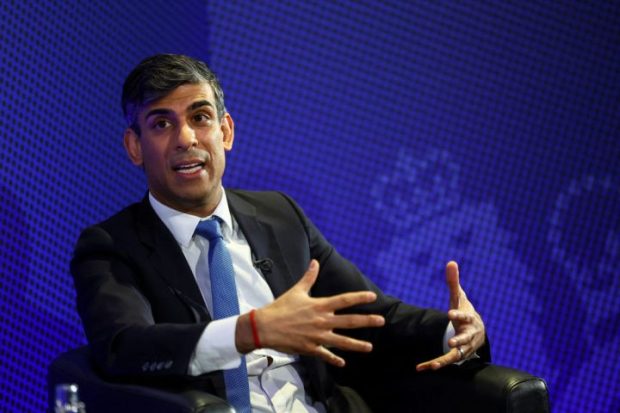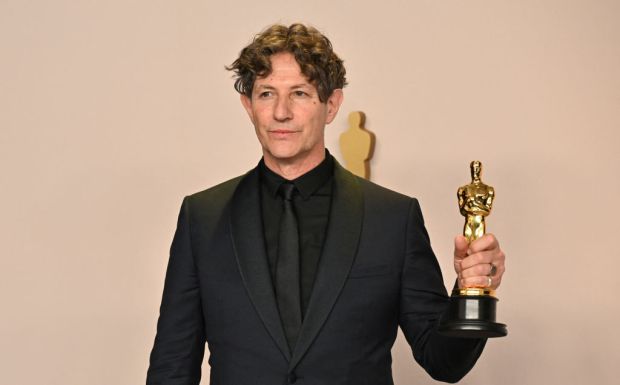We have been told that our mere presence as academics makes students feel unsafe. We have been threatened with violence, disinvited from speaking and even blacklisted. We have had our academic freedom curtailed. Our crime? Asserting that there are two sexes — male and female — and for insisting that some spaces are legally allowed to be organised according to sex and not gender identity. The Equality Act 2010 protects women’s spaces where it is proportionate and legitimate: spaces such as prisons, domestic violence refuges and sports teams.
The University of Essex has issued a public apology to us both. We were both blocked from attending events, and one of us subsequently blacklisted, over allegations of so-called ‘hate speech’. In other words, the view that sex is real. Ahead of the seminar at which Professor Phoenix was supposed to appear at, flyers had been distributed that included the phrase ‘shut the fuck up Terf’ (which stands for ‘trans-exclusionary radical feminist’). Included too was an image of a gun pointed at the reader, presumably aimed at the aforementioned Terf.
Since the apology, there has been much focus on the charity Stonewall and its support for the new trans orthodoxy. Set up in 1989 to challenge discrimination against homosexuals, over the past five years the group has controversially campaigned to support the claim that ‘trans women are women’. Their ideology has filtered into universities like Essex — and they have been found to have misinterpreted the law when advising public institutions.
But Stonewall’s influence is only part of the problem in universities today. At the heart of the issue is a wider culture of censorship that has filtered into every layer of our places of learning. The results are chilling.
Take students. For the past decade, they have been told that ideas they disagree with are ‘dangerous’ or ‘harmful’. They are told that even discussing these issues is, according to slogans regularly deployed by activists, ‘literal violence’. Those who distinguish between sex and gender are even ‘erasing trans existence’. Such phrases circulate on social media and are used to blacklist and no-platform women like us. They have moved from peaceful protests to demanding that universities provide ‘safe spaces’ in which no ideas can challenge their worldviews.
Of course, these ideas do not only come from the students — their lecturers and professors are also implicated. Today’s students have been told that something terrible will happen to them if they ask questions about gender identity. They are studying in a culture of fear. Teachers should lead by example, yet students look to academics bullying their peers into silence and feel legitimised to do the same.
Academics like us know that standing up to the bullies will mean further harassment and that our careers are forever tainted. We know this culture of fear better than most, and we know that the blame lies with our colleagues and our students. It was not Stonewall that stopped our right to free speech. It was not Stonewall that prevented one of us from doing our job. It was the staff and students at Essex that sent emails ‘alerting’ others to the fact that ‘well known transphobes’ were due to speak; that used official university meetings to politically vet one of us; and that trawled our social media for evidence that we were witches who needed to be burnt at the stake. Stonewall did not produce that threatening poster. It was the staff and students who tweeted defamatory and hateful things about us.
Sadly, the University of Essex is no different to most other universities. Take the University of Oxford, where Professor Selina Todd requires security to deliver lectures. At Sussex, Professor Kathleen Stock has come under constant and sustained harassment. At Edinburgh, the former Rector Ann Henderson was targeted by staff and students for years until she left her post in February, fearing for her life. These are just a few examples.
Academic freedom is not some fanciful idea. Academic freedom is what allows ideas to flourish across every discipline. We all know the story of Galileo and his theories that suggested that the Earth orbited around the sun, which led to his trial for heresy. Although he was found not guilty, he was told that he should not make any more public statements about a heliocentric universe.
It might be easy to think that this story has nothing to do with trans rights and the unlawful behaviour of the bullies at Essex, but this would be wrong. It has everything to do with it. Like Galileo, we are being told that what we are saying is correct but that we should stay silent because powerful lobby groups don’t like the truth we are telling.
UK universities have a legal duty to protect academic freedom but academics also have a professional duty. Academics are not employed to promote the policies of lobbying organisations or to shut down other academics who question those policies. We are employed to teach students to learn how to analyse, debate and grapple with complex issues.
The bullies fail to understand the difference between politicking and research. They have failed in their professional duties by insisting that some types of questions cannot be asked. We are fighting for intellectual freedom, professionalism and the ‘right’ simply to do our jobs as academics. We won’t stop doing so — there is too much at stake. <//>
Got something to add? Join the discussion and comment below.
Get 10 issues for just $10
Subscribe to The Spectator Australia today for the next 10 magazine issues, plus full online access, for just $10.



















Comments
Don't miss out
Join the conversation with other Spectator Australia readers. Subscribe to leave a comment.
SUBSCRIBEAlready a subscriber? Log in